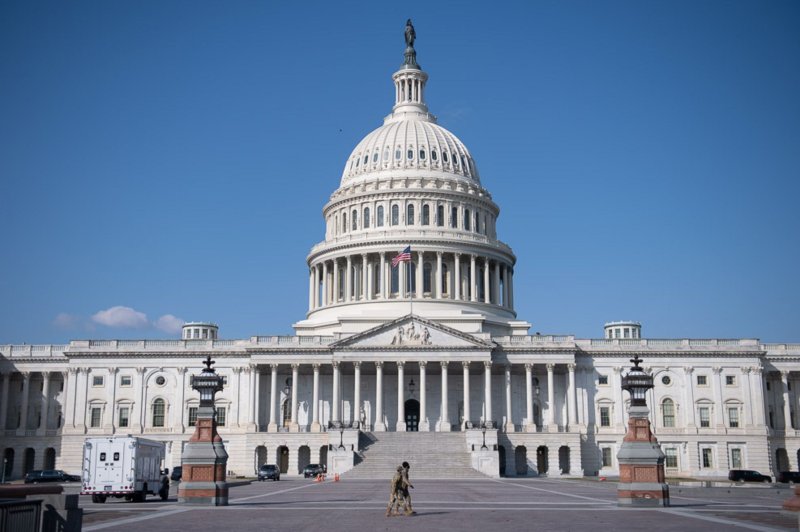The Senate is expected to debate and vote on amendments for President Joe Biden's COVID-19 relief bill late into the night. Photo by Kevin Dietsch/UPI |
License Photo
March 5 (UPI) -- The Senate's efforts to vote on a series of amendments to President Joe Biden's COVID-19 relief bill hit a roadblock Friday over the extension of unemployment benefits.
The $1.9 trillion stimulus package was set to include $400 weekly jobless benefits through August, but Sen. Rob Portman, R-Ohio, filed a proposal providing $300 weekly payments through mid-July. Some moderate Democrats appeared prepared to accept the lower payments, but sought a longer extension.
Sen. Tom Carper, D-Del., filed a proposal to extend the $300 weekly payments through September. He sought to add the extra month of benefits to avoid having a so-called cliff when the extra unemployment expires in August, when Congress is out of session and either wouldn't be able to vote on a new measure, or would have to return from recess.
"Have an unnecessary cliff for unemployed workers is not good policy," Carper said in a statement, according to NBC News. "We've found a way to avoid that and ensure that the millions of Americans who are still struggling to find work will see an immediate benefit before tax day this year."
Senators were locked in discussion for hours over the issue Friday evening.
CNN reported Sen. Joe Manchin, D-W.Va., appeared prepared to support the Republican proposal, and with a 50-50 split in the Senate, it could give the GOP the votes it needs.
The Senate is expected to hold a marathon session going into Saturday to vote on the various amendments -- a so-called vote-a-rama.
One unnamed senator, speaking to The Hill, blamed the hours-long delay in the voting on the uncertainty of whether Manchin will vote with Democrats or Republicans on the unemployment issue.
The House passed its version of the aid package last weekend, but two aspects have since been changed.
The provision to raise the federal minimum wage requirement to $15 per hour will no longer be part of the bill and Biden has agreed to impose greater income restrictions for Americans to receive the $1,400 direct stimulus payment.
Biden agreed to the new limits after speaking with Senate Democrats on Monday, some of whom have expressed concern that the large-scale relief package may be sending stimulus aid to Americans who don't need it -- a point of concern that most Republicans have raised for every stimulus payment given so far.
Senate Republican leader Mitch McConnell, the minority leader, has opposed the bill as excessive and says it includes too many provisions.
Democrats in the chamber, however, don't need any Republican support to pass the bill. They are attempting to pass the package through the budget reconciliation process, which only requires a simple majority.
The Senate is split 50-50 among Democrats and Republicans but Vice President Kamala Harris, in her role as Senate president, would cast any tie-breaking votes.















